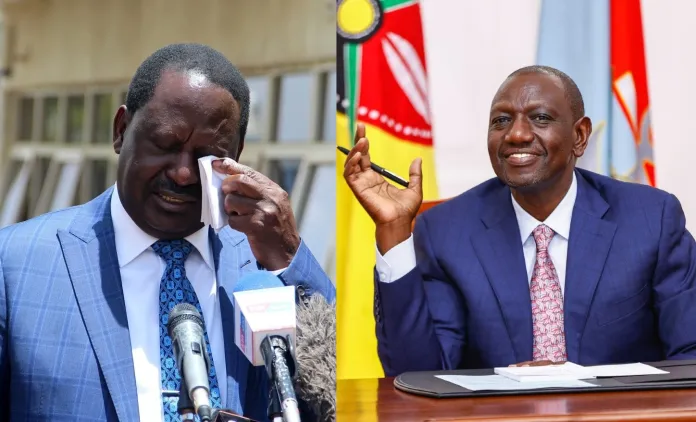In a bold move that has ignited both praise and controversy, President William Ruto, recently ratified a continental law aimed at protecting Heads of State and other senior government officials from prosecution for heinous international crimes while still serving their terms.
The law, known as the Malabo Protocol, includes an immunity clause that shields heads of state and senior state officials from investigation and prosecution for crimes they may commit during their time in office.
Ruto’s signing of the protocol of the African Union relating to the Pan-African Parliament (PAP) marked the first step towards the protocol’s ratification.
According to a statement by the Pan-African Parliament (PAP), Ruto’s signing of the Malabo Protocol was a result of a commitment he made during his keynote address at the 3rd Pan-African Parliament’s Summit on Climate Policy and Equity in May of the same year.
This commitment paved the way for the ratification of the protocol, garnering support from some African leaders who view it as a crucial step towards safeguarding the sovereignty of member states.
However, the move has also raised concerns among critics who argue that the immunity clause could shield leaders who abuse their positions of power to commit crimes under international law, leaving victims without justice and accountability.
The Malabo Protocol’s provision has been a subject of intense debate, with proponents emphasizing that it allows leaders to focus on their duties without the distraction of potential legal proceedings, while opponents assert that it may encourage impunity and undermine efforts to combat corruption and human rights abuses.
Adding to the complexity of the situation, Raila Odinga, has written to the International Criminal Court (ICC), seeking the indictment of Ruto and his allies over allegations of using excessive force and police brutality against Azimio protestors.
Kenya’s decision to sign the protocol makes it the 23rd state to do so, and if ratified by September, it will become the 16th country to adopt the Malabo Protocol.




































































